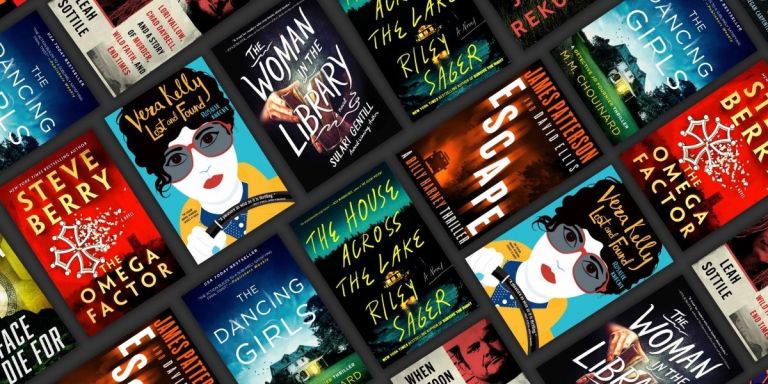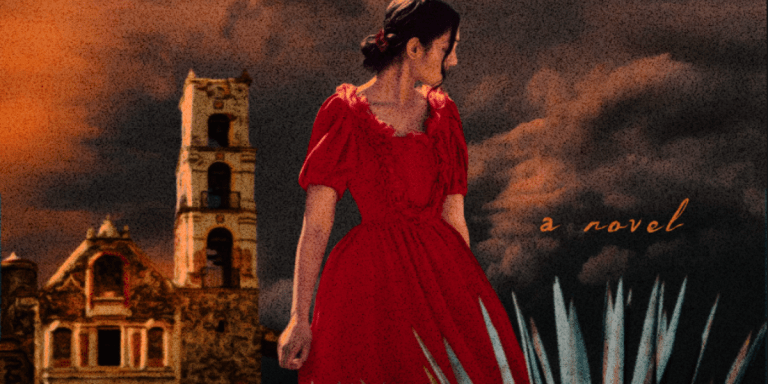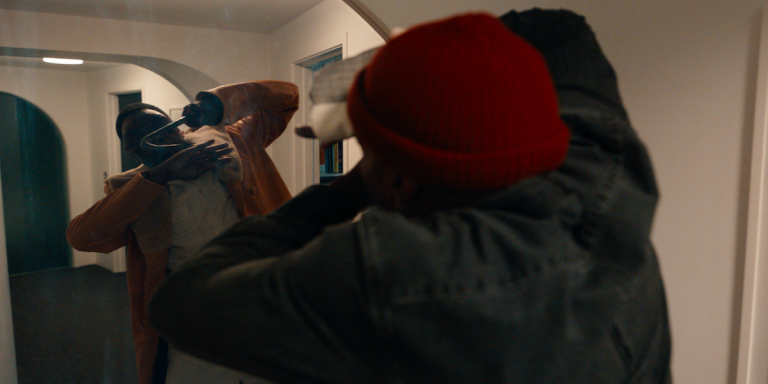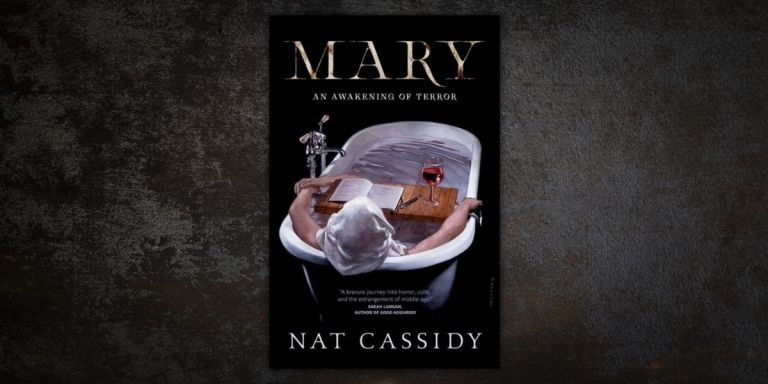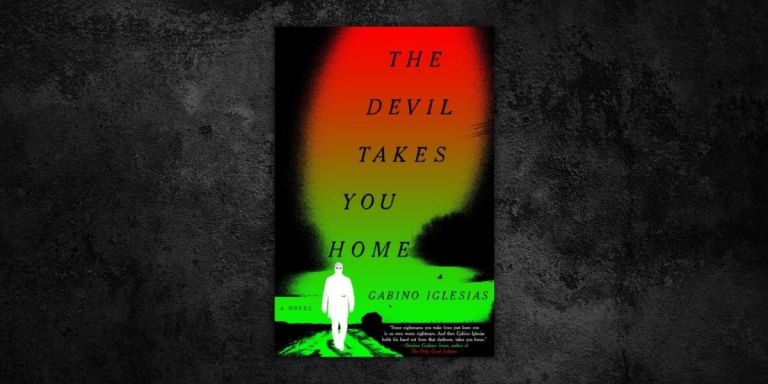Read the Excerpt: What Moves the Dead by T. Kingfisher
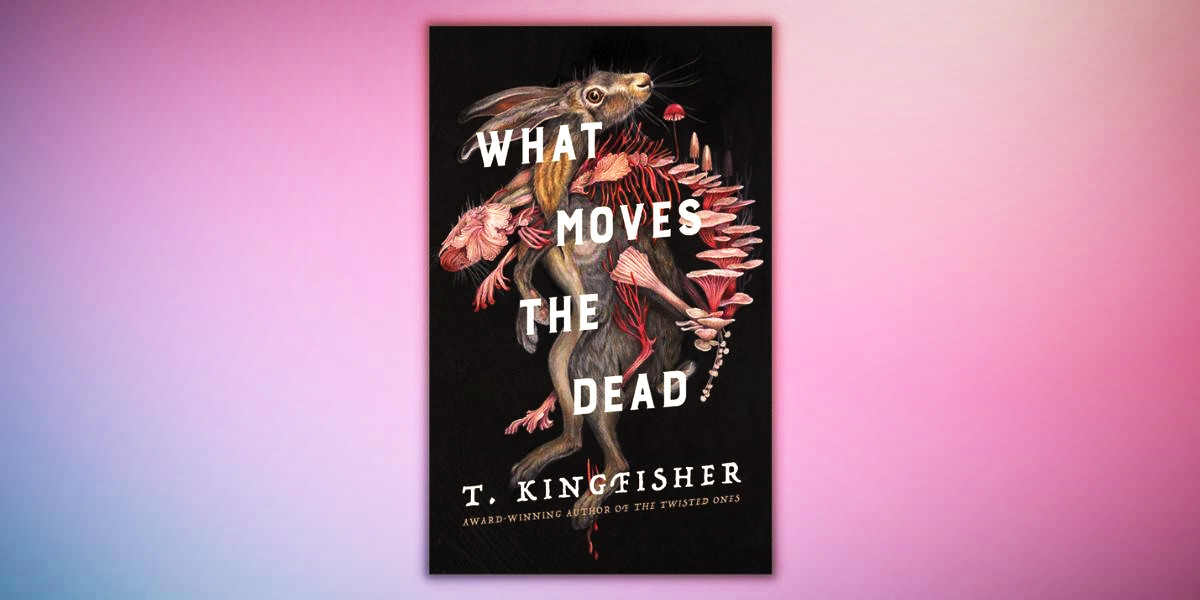 CHAPTER 3
CHAPTER 3
When it was finally late enough that I was yawning, Roderick walked me to my rooms. This time he took a candle, and went more slowly.
“Did Denton insult you?” he asked, once we were out of earshot of the parlor. I could tell he was genuinely worried. “He’s a good man, but you know they don’t have sworn soldiers in America. I’ll have a word with him if he did.”
I shook my head. “Just the usual sort of thing. He’ll settle down in a day or two, I imagine.”
Roderick sighed. “I’m sorry. I know how tired you are of that.”
I snorted. I’d been tired of it a decade ago. Now I’d moved to some other state entirely. Transcendent exhaustion, perhaps. Which had less to do with Dr. Denton and more to do with the ten thousand or so people before him. “I did not mean to surprise you and your guest, Roderick.”
“No, no.” The shadows jumped on the wall with the tremor of Roderick’s hand. “I was ungracious before. I’m sorry. Of course you would come when you thought Madeline was . . . was ill. I should have realized.”
“We were friends, once,” I said quietly. “I hope we still are.”
“Yes. Yes.” He turned to me almost eagerly, and I tried not to recoil at the way the candle cast deep shadows across his eye sockets and the gaunt planes of his face. “We were. We are. You led the charges. You knew what had to be done and you did it. I . . . I could use that now. I no longer know what needs to be done.”
“We’ll figure it out. It can’t be worse than facing a line of rifles.”
“Can’t it?” Roderick blinked at me. “This place . . . this place . . .” He gestured with the candle. I followed the gesture to where wallpaper had peeled back from the walls, hanging in rags, leaving the exposed flesh of the building behind. Mold crept up the pale boards, tiny spots of black that joined together like constellations. “I hear things now,” he said. “Everything. My own heartbeat. Other people’s breathing sounds like thunder. Sometimes I fancy I can hear the worms in the rafters.”
“It’s a holdover from the war,” I said, thinking of my own tinnitus. “Too many shells, too many bullets. We’re all halfdeaf and hearing things.”
“Perhaps. But I hate this place,” he said, almost dreamily. “And I am so afraid. I was never afraid like this during the war.”
“We were younger then,” I said. “And immortal.”
He forced a smile. It was ghastly and I looked away, back to the moldering wallpaper. “Perhaps that’s it. But this place has made me afraid. This dreadful house. I think I would rather face a line of rifles, even now. At least that’s a human enemy.”
I had no idea what to make of this talk. “We’ll figure it out,” I said again, firmly.
“I hope so. Everything frightens me now.” He shook his head and laughed, and it was almost as ghastly as his smile. “I am not the soldier I was.”
“None of us are what we were,” I said, and let him show me to my room.
Breakfast was early. There were eggs and toast and black tea and little else on the sideboard. I took three eggs and felt immediately guilty for imposing so on Roderick’s hospitality. Was there some way to make it up to him without appearing to offer charity? Bring in a deer, say, or a brace of partridge? I sat with my tea, dipping my toast in the egg yolk, contemplating how one might increase the contents of the larder without it being obvious, when Denton came in. I nodded to him. He grunted. Not a morning person. That was fine, I wasn’t either. I waited until he’d had his second cup of tea before asking the question I’d wanted to ask last night.
“Do you know what’s wrong with Madeline?” I asked. “Medically?”
Denton raised his eyes blearily from his tea. “You don’t pull punches in the morning, do you, Lieutenant?”
I began to apologize, but he waved it off.
“No, it’s fine. I won’t know any more when I’m awake than I do now. Hysterical epilepsy is probably the diagnosis she’d be given in Paris, for all the good it does.”
“Hysteria?”
“Yes. Which is a useless damn diagnosis.” He poured himself another cup of tea and offered me what was left of the teapot. I took it, even though the tea had steeped to bitterness. “Hysteria is like consumption used to be. Something wrong with you that we can’t seem to fix? It’s probably consumption. Now Koch has isolated the bacillus responsible for tuberculosis and we don’t have that to lean on any longer, so we have to admit that there are people dying of something that isn’t tuberculosis.” He slugged back his tea and grimaced. “But we still have hysteria, although Monsieur Charcot tells us it’s in men as much as women. Do we know the cause? No. Do we know how to treat it? No. Is it probably a dozen different disorders lumped under one name? Almost certainly. Don’t ask me. I’m good with a bonesaw and I’ll pour brandy down your throat and over your stump, but disorders of the nerves are beyond me.”
“How odd,” I said. “Madeline never struck me as the nervous sort. Neither of them did. Though Roderick . . .” I remembered his air last night, his talk of fear and the dreadful house.
Denton gave me a meaningful nod, and I guessed that Roderick had expressed the same sentiments to him. “I can’t say that you’re wrong there,” said Denton. “Particularly not of late. But I can tell you that Madeline has catalepsy.”
“Catalepsy!”
Denton nodded glumly. “Severely. She falls into immobile states for hours, and they are getting worse. The most recent was only a few days ago, and it lasted nearly a day and a half. Her reflexes were gone, she was ice-cold, and I could only barely see traces of her breath on a mirror.”
I slumped back in my chair. That must have been after Madeline had written to me. No wonder Roderick thought she was dying. “I had no idea.”
“No reason you should have.” Denton rubbed his hand over his mustache. “Of course, that’s a diagnosis of the symptom, not the cause. As for the cause . . . I don’t know. She’s anemic and doesn’t eat enough.”
I looked over the spread of food. “Perhaps I’ll go hunting, if Roderick does not object.”
“I would have myself, but I’m a dismal shot.”
I smiled. “Well, I am terrible at sewing people up after they’ve been shot, so I suppose it all works out.” I pushed away from the table and went to go see what equipment I had to work with.
Predictably, I got lost. The house was a maze, and I hadn’t seen it well the night before. I had only found the breakfast room by following the smell of toast. Eventually I saw a set of shuttered doors, half ajar, which seemed to indicate a balcony. Possibly if I got outside, I could figure out where in the building I was. Failing that, maybe I could climb down and walk to the front door.
When I reached the balcony, however, I found that it was already occupied.
In daylight, Madeline looked twice as shocking. Her hair was a dandelion’s colorless wisp and her skin looked almost transparent. When she stood against the sun, I half expected to see light stream through her like a stained-glass window, with a frame of bones instead of lead.
“The lake is lovely, is it not?” she said, looking down over the water.
“Mountain lakes so often are,” I said, which was true, even if this particular one was not. It looked dark and stagnant. Lovely is not the word I would have used to describe it. In need of fire and holy water, perhaps. Could you even burn a lake? I know there was a river in America that caught fire once, and had made the papers as an amusing footnote about how the Yanks could even make water burn, but I vaguely recalled there had been some kind of chemicals involved.
“Dear Easton,” said Madeline. “Do you remember when we went down to the river together and tried to catch fish?” “I remember that I caught one,” I said, “and your execrable cousin . . . what was van name? Sebastian? . . . tried to steal it.”
“And you pushed van into the river.” She wrinkled up her nose and giggled. I tried not to show how much the sound of her giggle shocked me. It sounded thin and papery, like an insect rubbing its legs together, not at all like I remembered.
“It was so much easier back then,” said Madeline longingly. “We were all van together. So young and healthy and hopeful. Now look at me.” She gestured to her face and body. “It’s no wonder that Roderick thinks I’m dying, when I look like this.”
“How do you feel?” I asked, seizing upon the opening. “Do you know, I feel quite energetic at times? I know that I look a fright. My mirror doesn’t lie. No, he is quite right. I don’t have much longer. But I did not think I would feel so restless.”
I studied her face. She was still paler than any living being had a right to be, but there were two spots of color on her cheek, high and hectic. I was struck by a feeling that her skin was nearly transparent and if I were standing closer, I could have seen the individual tiny capillaries filled with blood. Her eyes were feverishly bright, but when I had touched her hand earlier, it had been as cold as the waters of the tarn.
Catalepsy. Anemia. “You should leave here,” I said abruptly.
“This place can’t be healthy. Let Roderick bring you back to Paris. We’ll go to the theater and the museums and walk in the parks and eat lemon ice.”
She smiled, though it seemed like she was not looking so much at me as through me, and smiling at whatever she saw on the far side. “Lemon ice. I remember. We had them the last time I saw you, before you swore as kan.”
I had no real memory of what we’d eaten that day, but I agreed anyway. “We’ll have it again.”
“Ah, Easton.” She patted my arm. Her hand felt chill, even through the sleeve. “You’re kind. But I belong here. I would be lost if I could not go down to the lake and confess my sins.”
“What sins could you possibly have?” I asked, trying to sound playful, not entirely succeeding. “You have always been above reproach. You did not even help me push your cousin into the river.”
“Have I?” She looked through me again. “Perhaps it is only in dreams that I am sinning.” She smiled again, but it turned into a yawn. “Forgive me, dear Easton. I am tired. I should go lie down for a little while.”
“Let me walk you to your door,” I said, offering her my arm. “You will have to tell me where it is, in this great maze of a house, but I will take you there.”
She leaned on me. She weighed nothing at all. I saw her to her room, and she seemed to float through the door as if the earth could no longer quite hold her.
When I finally returned to my rooms, after trying three doors that looked right and weren’t, I found a very welcome arrival. My batman, Angus, was already there.
“Angus!” I clasped his forearm. “You made it!”
“Aye,” he said, fixing me with a gimlet eye. “A short journey with fresh horses over empty roads in decent repair. Truly it taxed me to my limits. Sir.”
I grinned, unrepentant. Angus served my father before me, and even then was long in cunning, if not yet long in years. When my father was killed in battle and I swore in, he took one look at me, a callow fourteen-year-old with bound breasts and a freshly shaven skull, and took me in hand. “For,” he said, “the Good Lord may look out for fools, but it won’t hurt to have another set of eyes helping.”
When I sold out my commission, he came with me. His beard and mustaches had gone entirely gray and he could predict the weather with pinpoint accuracy based on various aches and pains, but I would have put him up against any younger soldier I know, myself included.
He had a thick Scottish brogue when he chose to indulge in it, but could shed it instantly for unaccented Gallacian, and even I didn’t know where it was he came from originally. He never expressed any desire to return. I had offered once, and it so offended him that I did not offer again.
“Should I be insulted by the room they’ve put you in, or are they doing the best they can?” he asked.
I glanced around the room. It wasn’t much better by daylight than it had been by candlelight. The wallpaper was still mostly intact and the fireplace worked, but there was a creeping damp to the air. The great curtained bed sagged and the curtains were tattered to gauze. The door to Angus’s room was swollen and stuck in the jamb. “I think it’s the best they can do,” I said. “And go easy on the fire, will you? I don’t think they can afford the logs.”
“So that’s the way of it, eh?” Angus nodded. He helped me out of my jacket and scowled at the room in general. “Cheerless house,” he said. “I mislike it.”
“You and me both,” I said tiredly. “You know I’m not a superstitious soul, Angus, but I swear there’s something wicked here.”
“Well, I am a superstitious soul,” said Angus, “and I know there is. It ain’t canny. The sort of place you find devils dancing on the moors.”
“There aren’t any moors. There’s a sort of heath and a tarn and a mad Englishwoman painting mushrooms.”
He raised an eyebrow. I described the redoubtable Eugenia Potter.
“Oh, that sort!” he said, poking up the fire and turning the bricks to heat them. “One of the fine, fierce old ladies of England. They’ll climb mountains and make tea on the summit if they need to. We’d have done a damn sight better in the war if they’d sent them over instead of the troops.”
“Probably not a devil of the moors, then?”
“Well, I haven’t met her yet. She might be.” Angus sniffed. “Mushrooms, eh?”
“Yes, and some nasty ones, too. Poked one with a stick for me, and it smelled like an open grave and rotten milk. And she said it wasn’t even ripe yet!”
“They say mushrooms spring up where the Devil walks,” said Angus sourly. “And where fairies dance.”
“Do you think they ever get the two confused? The Devil shows up to a fairy ball, or finds himself mobbed with elven ingénues?”
He gave me a look from under his eyebrows. “You shouldn’t joke about fairies. Sir.”
“Oh, very well. As long as I can still joke about the Devil.” He grunted, which was Angus-speak for not approving but not caring enough to stop me. “The villagers don’t like the place,” he said.
I had passed through the village, but hadn’t thought much about it. It didn’t look bad. It didn’t look good. It was a village. It looked like every other small village in Ruravia, which also look pretty much like every small village in Gallacia, although they carve flowers on their shutters here and we carve turnips. (That is a general we. I have never carved a turnip in my life.)
“Don’t like the house? Or don’t like the Ushers?”
“The house. If anything, I’d say they pity the current crop. Sir Roderick’s great-uncle, or whoever he inherited this heap from, sold the people their land back before the creditors came for it, so they remember him fondly. ‘Our Usher,’ they call him. And Sir Roderick’s ‘Young Usher.’”
“And Madeline?”
He gave me an opaque look. “‘That poor Usher girl.’”
I sighed. Angus raised an eyebrow. “She’s not looking well,” I said, in response to the unspoken invitation. “I see why Roderick thought she was dying. I think she might be.” Angus is a sympathetic soul, particularly for women. “Ah, the poor lass,” he said, and meant it. “This is no place for a
delicate lady. I tell you, it’s haunted, moor or not.” “Did the villagers tell you that?”
“You laugh, but aye, they did. I asked about hunting hereabouts, and they told me not to do it. Said the place is full of witch-hares.”
“Witch-hares?”
“Aye. Familiars to devils. You shoot one and the next day you find a witch with a bullet in her heart.”
“Hard luck for her. Are many little old ladies with warts turning up with bullets in them around here? That really sounds like a job for the constabulary.”
“Bah. Disbelieve me all you like. They say the hares don’t act right, though. They forget how to run. The man at the inn, he said he’d walked right up to one once and it sat there and stared at him as if it had never seen a human man before.”
“I assume a witch would have seen a man before, so I don’t know if that goes to support your theory.”
Angus drew himself up to his full height, which wasn’t much, and full dignity, which was considerable. “’Tis not my place to speak on the habits of witches. But I’ll not hunt hares here, I can tell you that much. Nor deer.”
I raised an eyebrow. Angus is particularly fond of eating all of God’s creatures, and this seemed like a great sacrifice. “How will you occupy your time, then?”
“I,” said Angus, still with unassailable dignity, “plan to go fishing.”
Discover the Book
When Alex Easton, a retired soldier, receives word that their childhood friend Madeline Usher is dying, they race to the ancestral home of the Ushers in the remote countryside of Ruritania.
What they find there is a nightmare of fungal growths and possessed wildlife, surrounding a dark, pulsing lake. Madeline sleepwalks and speaks in strange voices at night, and her brother Roderick is consumed with a mysterious malady of the nerves.
Aided by a redoubtable British mycologist and a baffled American doctor, Alex must unravel the secret of the House of Usher before it consumes them all.
By clicking 'Sign Up,' I acknowledge that I have read and agree to Hachette Book Group’s Privacy Policy and Terms of Use
